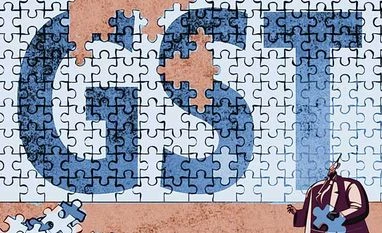"With the amended GST Bill, the state will have authority to collect taxes on transactions other than purchase or sale within the state. This will authorize the state to collect taxes on various kinds of supplies too," said Nitin Patel, deputy chief minister of Gujarat.
Introducing the GST Bill at the Assembly, Nitin Patel stated that before this, union government had the autonomous right to levy and collect tax on services. With this amendment, this right will be passed on to the states. Services have about 50 per cent share in country's gross domestic product (GDP) which is gradually increasing. The Bill will provide the states to collect taxes from service sector.
Also Read
On the last day of the two-day session for GST, the Congress members had caused uproar over the Dalit atrocities issue in the Gujarat. The speaker Ramanbhai Vora had suspended 44 Members of Legislative Assembly (MLAs) of Congress party for disturbing the house. Later all other Congress MLAs left the house in solidarity with the suspended members. Congress has 56 MLAs in the 182 members Assembly in Gujarat.
Pandemonium reined in the state assembly, as Congress MLAs repeatedly trooped into the Well to demand an inquiry into the incident as also a commitment from the BJP-led state government to announce the steps they would be taking to assuage the hurt sentiments of the Dalit community.
Patel said: "The change in the bill is not for increasing the income of state or central government. Our aim is to remove defects of current tax structure."
The GST Constitution (122nd Amendment) Bill was passed by the Lok Sabha earlier in this month. Gujarat became sixth to have passed the GST Bill, which requires approval from at least 15 state legislatures before the President notifies the GST Council.
)